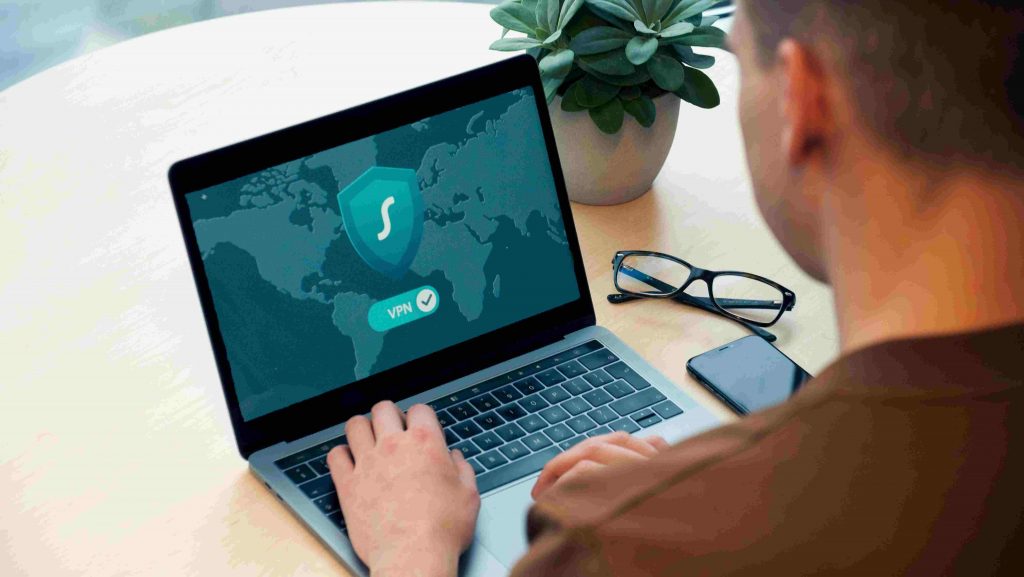Being mindful of cybersecurity is more important than ever. However, dangers await you even when you do simple tasks such as browsing the web, checking emails, and handling any online interactions.
And it has become increasingly common for students to become the victims of cyberattacks. So, to help you take sufficient precautions, we have created a list of some of the cybersecurity tips and tricks that you can use to protect your data.
1. Backup Your Data
This tip is indeed the most obvious and one that you already know. Nevertheless, many students fail to back up their data regularly. After all, you might be in a hurry all the time, worrying about deadlines and studying for tests.
However, imagine losing access to half-finished assignments because you did not back up your data. Of course, academic paper help by WritePaper can offer assistance for term papers. However, that might not be the case with other files, such as your old research papers or personal data.
And these days, you do not even have to rely on external hard disks for backup. So while this offline method is recommended, you can also choose cloud-based backup solutions that might also make it easier to download your files.
2. Avoid Public Wi-Fi
It can be tempting to switch to the public Wi-Fi network when doing homework at a cafe, leveraging online learning tools, or your university library. However, this is one of the least secure ways to access the internet.
Public Wi-Fi connections make it incredibly easy for a criminal to access the data on your device. One way to fight this is to install a VPN on your device. This Virtual Private Network will ensure that the connection is encrypted, hiding the IP address of your device. You can download a free VPN app from Google Playstore or Apple App Store and turn it on as you need.
So, in case you do not have any other option but to rely on public Wi-Fi, make sure you switch to VPN mode.
3. Use Two-Factor Authentication
Most websites and applications require you to set up two-factor authentication to add another layer of cybersecurity to your accounts. This means that, on top of signing in with your email and password, you will also have a code sent to your phone to log in to your account.
This way, if someone else tries to gain access to your account, they cannot do so without the one-time password sent to you in real-time. To set this up, you only need to follow the instructions provided by the specific app.

4. Use a Password Manager
It is no news that strong passwords are pertinent to online security. These play a crucial role in keeping hackers away from your data. There are a number of steps you can take to come up with strong passwords and secure them.
- Go for passwords that are at least eight characters long and something you can remember.
- But avoid using passwords that have your date of birth and things that are too easy to guess.
- Your password should contain one lowercase letter, one uppercase, a number, and symbols.
- Avoid using the same password for two different accounts.
- Change your passwords regularly.
Naturally, it can get difficult to keep track of all passwords. So instead, what you do is use a password manager. These are available as apps or come built-in with your browser and can be accessed with login credentials.
More importantly, you should also have a strong password for your password manager. After all, if someone gains access to this app, they will be able to retrieve all your passwords. Or alternatively, you can also go for the pen-and-paper style of storing your passwords. This might turn out to be an inconvenience, but nevertheless, safer.
5. Be Careful With Social Media Platforms
It has become quite common for people to include personal information on social media websites. However, this isn’t the same as providing your personal data for online exams or KYC verification. On the contrary, divulging your Personal Identifiable Information (PII) on social media websites can be easily used by a cybercriminal to identify or locate you.
This includes details such as your full name, address, date of birth, phone number, social security number, and digital identity data. It is best to show the bare minimum about yourself on social media.
Adding your home address, phone number, or date of birth can help criminals who seek personal data and use them to their advantage.
6. Keep your Software Up-to-date
You might end up dismissing some of the software update notifications that you receive. However, it is imperative that you regularly attend to this. You can turn on automatic updates so that these will run at a convenient time when you are not using the device.
You should also update internet browsers such as Chrome, Safari, or Firefox. These can be of utmost significance, especially when you spend a lot of time online browsing academic platforms related to your field of study. While at it, you should also check updates for browser plug-ins such as Flash and Java.
The concept of keeping things updated also extends to apps. So you should also be sure to check updates for apps, especially those such as banking and investment apps that store your personal information.
7. Beware of Phishing Scams
Phishing scams are always a threat and can come in a variety of ways. In simple terms, these refer to the different methods cyber criminals attempt to trick you into divulging personal information.
For instance, you might receive a phone call, an email, or a text, asking you to provide your login information or one-time passwords. You should be suspicious of anything out of the ordinary and any messages that ask for financial information.
If in doubt, you should always verify with the official platform before providing any information. It is also important that you educate yourself about the different ways phishing scams can occur, as cybercriminals are getting creative these days.
8. Don’t Leave Devices Unattended
When you are on campus or elsewhere, never leave your devices unattended. If at all you need to leave your laptop or phone for a quick five minutes, make sure you lock it up so others cannot use it.
And importantly, you might want to log out of important apps and platforms when not using them.
9. Attend to the Security of Mobile Devices
It is equally important to secure your mobile devices to avoid cybersecurity threats. For example, you should use something less incriminating than your birthdate for your passcode or your bank pin. And it is also best to stick to official platforms such as Google and Apple play store when downloading apps.
And when sending PII or any sensitive information, do not share them over text message or email. And whenever possible, leverage tools such as ‘Find my Phone’ to prevent loss or theft.
Takeaway
Bear in mind that it is your responsibility to keep your data safe. After all, even if a security breach occurs due to someone else’s carelessness, it is your data that would be at threat. Therefore, you must stay on top of cybersecurity guidelines and do regular upgrades to make sure that all the applications you use are secure.
Disclosure: If we like a product or service, we might refer them to our readers via an affiliate link, which means we may receive a referral commission from the sale if you buy the product that we recommended, read more about that in our affiliate disclosure.
Source: Tech Follows




